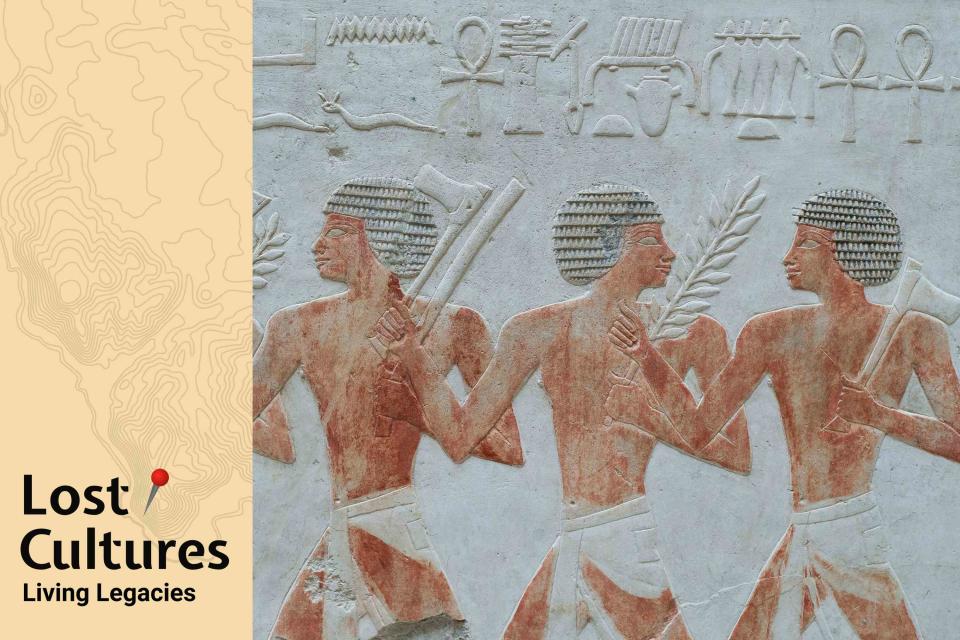This Displaced Egyptian Community Is One of the Oldest on Earth
Who are the Nubians? Learn more in this week's episode of "Lost Cultures: Living Legacies."

Getty Images
Every Wednesday on the Lost Cultures: Living Legacies podcast, host Alisha Prakash, Travel + Leisure's associate editorial director, explores a unique cultural identity around the world and shares how you can learn more about it on your travels, too.
Egypt is often synonymous with pyramids and pharaohs, but lesser known is an equally significant part of the nation's history: the Nubians.
"Nubians are a linguistic and ethnic group that has lived for millennia in Northeast Africa. [They] have their own complex ancient civilization that rivals that of Pharaonic Egypt, which is much better known," anthropologist Yasmin Moll, who is directing a documentary called "Finding Nubia," told Travel + Leisure. "Nubians ruled over Pharaonic Egypt as a 25th dynasty. They also had a rich and flourishing culture in the medieval times."
The Nubians' ancestral land is in what is now south of Egypt and north of Sudan, according to Mona Sherif-Nelson, the founder of the Nubian Foundation. Not surprisingly, most of the present-day Nubians are citizens of Egypt or Sudan.
"Nubians are one of the oldest communities that are still living on this Earth, but also it is a Black peoplehood," said Menna Agha, a third-generation Fadijja Nubian. "It's a Black community that kind of sits between two different countries that are identified as Middle Eastern/North African."
The community lost its ancestral land in the 1960s with the building of the Aswan High Dam that submerged Nubian land and displaced its community. In spite of facing obstacles — from British colonization to modernization — the Nubians have survived. "Our land is lost, but I don't think our culture is," said Agha.
"[I] think it's super important to learn that there are people who are Nubian, who identify as Nubians, who have a distinctive culture, who continue to live today in Egypt and Sudan and to not let this glorious or prestigious ancient past overwhelm this contemporary culture," added Moll.
The Nubian diaspora has preserved its culture through wedding customs, traditional music, and food. And in the digital age, social media plays a vital role in collecting stories of the community.
"Today, I would say, Nubians and descendants of that culture are really united by a shared loss," said Moll. "But still, we like to say that Nubia still lives inside of us, guwanna, and it lives in our songs about it, it lives in our dances for it, it lives in our stories about it, and now it lives on in social media. We're very proud of this culture that's often, I think, misunderstood or marginalized or seen as only belonging to the ancient past, is not really part of the present."
To learn more about the Nubians, listen to Prakash's conversation with guests Yasmin Moll, Menna Agha, and Mona Sherif-Nelson in Lost Cultures: Living Legacies, available on Apple Podcasts, Spotify, Amazon Music, and everywhere podcasts are available.
Editor's Note: Please be mindful that this transcript does not go through our standard editorial process and may contain inaccuracies and grammatical errors.
For more Travel & Leisure news, make sure to sign up for our newsletter!
Read the original article on Travel & Leisure.

